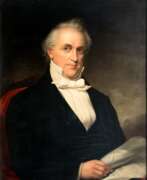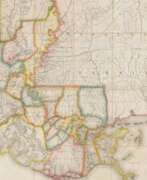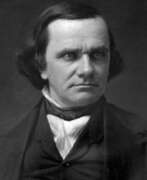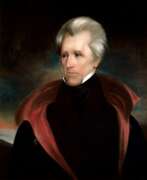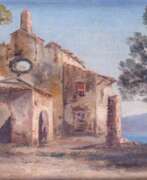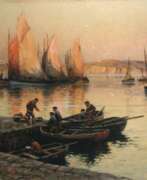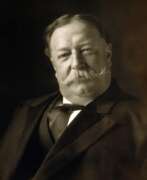Judges 19th century
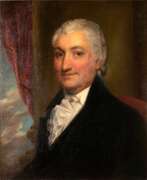

Hugh Henry Brackenridge was an American writer and poet, jurist and Pennsylvania Supreme Court Justice.
Hugh Henry graduated from the College of New Jersey (now Princeton University), learned Latin and Greek, and became a teacher. He later served in George Washington's army and published two verse dramas on revolutionary themes. He worked with the poet Philip Morin Freneau (1752-1832) on satirical and political publications.
Hugh Henry Breckenridge founded the Pittsburgh Academy, now the University of Pittsburgh, and the Pittsburgh Gazette, which is still published today.
Breckenridge is also known as the author of the first novel about frontier life in the United States after the Revolutionary War, Modern Chivalry. Considered one of the earliest American novels, this book was published in installments beginning in 1792 over a period of 23 years. In the latest edition, Captain John Farrago, along with his own Sancho Panza, Teague, leaves his farm in western Pennsylvania and sets out to find adventure in the big world.
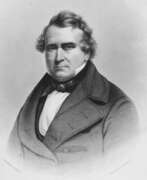

James Hall was an American lawyer, judge, treasurer, and editor.
Hall studied law, fought in the War of 1812, served as a lawyer and circuit judge, newspaper and magazine editor, Illinois state treasurer, and banker in Cincinnati, Ohio. In addition, he was also a historical and fiction writer. In 1828, Hall compiled the first western literary yearbook, Western Souvenir, and edited the Illinois Monthly Magazine. James Hall wrote a travel book, Letters from the West (1828), a novel, The Head of the Harp (1833), and several volumes of short stories.
Hall also contributed to the three-volume History of the Indian Tribes of North America (1836-1844). This book includes portraits of the chiefs of more than twenty Indian tribes, which were painted by noted artists of the day, with biographical sketches by Superintendent of Indian Affairs Thomas L. McKenney.
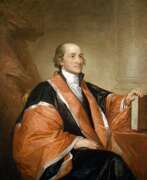

John Jay was an American lawyer and diplomat, statesman, and one of the founding fathers of the United States.
Jay came from French Huguenots, after graduating from King's College (now Columbia University) he entered law school and was admitted to the bar in 1768. After the outbreak of hostilities in the spring of 1775, Jay continued to serve both in New York and in the Continental Congress, which elected him president in late 1778.
In the fall of 1779 he was appointed minister plenipotentiary to Spain, which had recently entered into an alliance with France against England. In May 1782 he traveled to Paris, where a treaty was concluded that formally ended the war with Great Britain in 1783. Before returning to America in July 1784, Jay was appointed secretary of foreign affairs.
In 1788, Jay actively advocated for the ratification of the U.S. Constitution by the state of New York. Together with future President James Madison and economist Alexander Hamilton, he participated in the creation of the famous book The Federalist (1788). Under the new Constitution, President Washington appointed John Jay Chief Justice of the United States in 1789, and in July 1795 he became Governor of New York. After completing his second term as governor in June 1801. Jay retired to his farm in Bedford, New York.
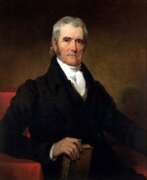

John Marshall was Chief Justice of the United States Supreme Court from 1801 to 1835, Secretary of State, and one of the founders of the American legal system.
During the Revolutionary War, Marshall served first as a lieutenant and after July 1778 as a captain in the Continental Army. In 1781 he left the service, studied law, and began practicing law in Virginia, in Fauquier County, and then in Richmond. He soon became head of the Virginia bar and was a member of the Virginia assembly. In 1788 he took a leading part in the Virginia convention convened to discuss the proposed U.S. Constitution. In 1797-98, along with Charles Cotesworth Pinckney and Elbridge, Gerry Marshall was appointed by John Adams to negotiate with France.
He was Secretary of State under President Adams from June 6, 1800 to March 4, 1801. At the same time he was appointed Chief Justice of the Supreme Court in 1801 and served in that position until 1835.
John Marshall was a personal friend of Washington, he announced his death in 1799, organized his funeral, and delivered his eulogy. Washington's relatives soon asked Marshall to write a biography of the late president. "The Life of George Washington" was published in London in 1804-1807. It includes illustrations, portraits, facsimile letters, and folding maps.
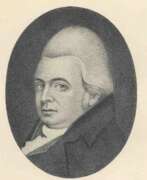

Royall Tyler, real name William Clark Tyler, was an American politician, lawyer and judge, playwright, essayist and educator.
He graduated from Harvard University, was admitted to the bar, and in 1801 was appointed a justice of the Vermont Supreme Court. In 1811, Tyler was appointed professor of jurisprudence at the University of Vermont.
Royall Tyler is best known today as the author of the first American comedy, Contrast, which premiered in 1787 at the John Street Theater. This play is the first to feature a Yankee character, a character native and familiar to local audiences, and the forerunner of many such in later years.
